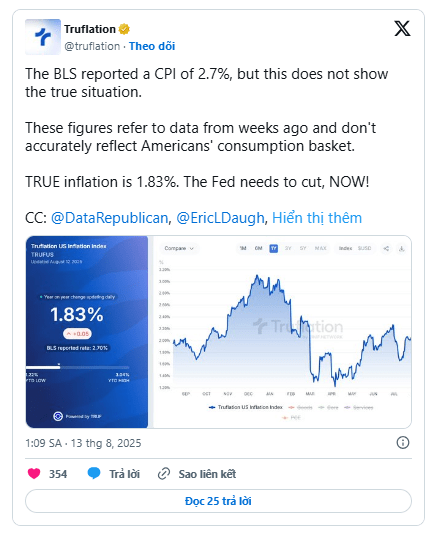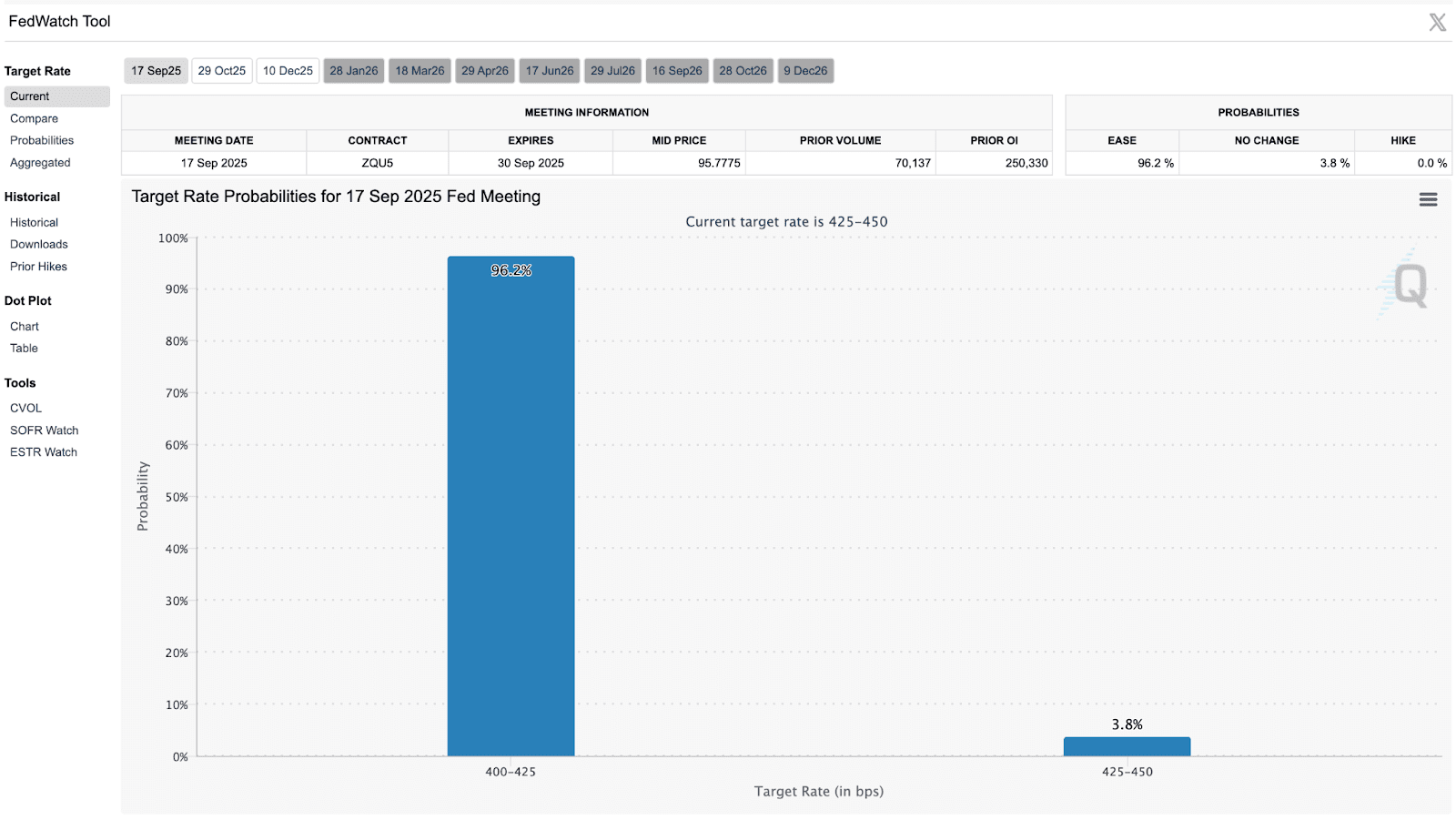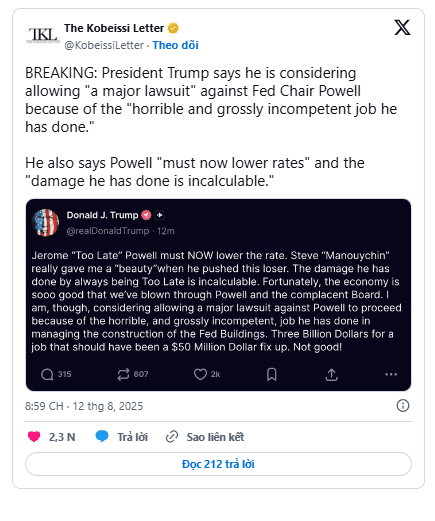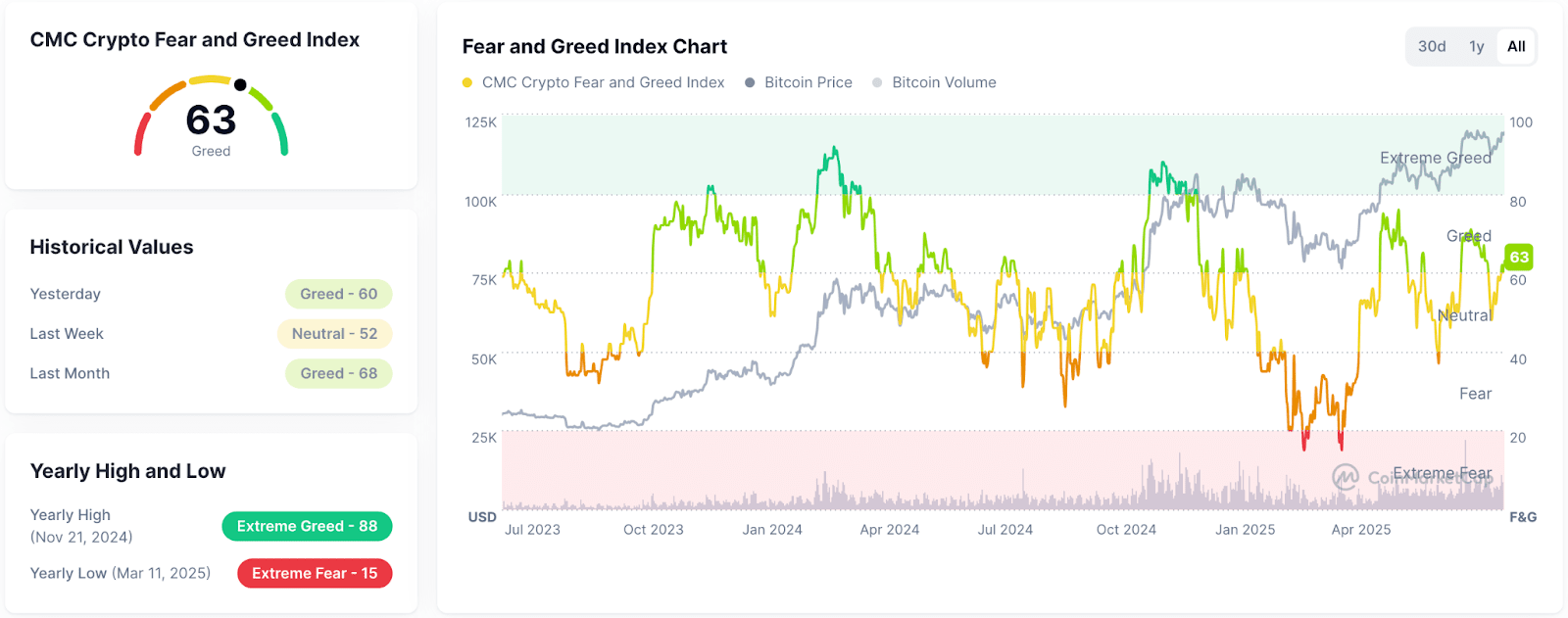Scott Bessent, the Treasury Secretary, called for the Federal Reserve to cut interest rates by 50 basis points in September following the "Stunning" inflation report released on Tuesday, which would be a significant shift from the Fed's hawkish stance of maintaining rates at 4.25%-4.5% for five consecutive meetings. The Consumer Price Index for July rose 0.2% month-on-month and 2.7% year-on-year, lower than the estimated 2.8%, while core CPI reached 3.1% year-on-year, exceeding the forecast of 3.0%.
Mixed Inflation Data Masks Persistent Price Pressures in Key Areas
White House Press Secretary Karoline Leavitt emphasized that inflation "once again exceeded market expectations and remains stable."
She emphasized Trump's commitment to lowering costs while noting that tariffs are "reaping billions of dollars" with small business optimism at its highest level in five months.
However, inflation analysis shows significant price pressures in essential items despite substantial improvement.

Core CPI has now increased for three consecutive months, marking the first string of increases since September 2022. Market reactions lean towards risk assets despite mixed data.
According to a CNBC report, Alexandra Wilson-Elizondo from Goldman Sachs Asset Management noted that the Fed is receiving "supporting data showing that the impact of tariffs on prices will primarily be temporary" as companies offset cost pressures by reducing inventories.
As a result, market odds for a rate cut in September surged from 80% to over 96% after inflation data, with traders now pricing in three Fed cuts before the end of the year.

The S&P 500 Index reached a new all-time high while the dollar weakened below the 50-day moving average, facilitating a cryptocurrency market increasingly tied to macroeconomic indicators.
According to a Bloomberg report, Bessent expressed hope that Trump's Fed board nominee Stephen Miran would be confirmed by the Senate in time for the policy meeting on September 16-17.
He noted that Trump is "casting a very wide net" to find a successor to Jerome Powell, whose term ends in May, with the primary criterion being views on monetary policy, management stance, and ability to reform the organization.
The Treasury Secretary's comments are in stark contrast to previous Fed announcements, as Powell dismissed the prospect of a rate cut in September during the July meeting, causing Bitcoin to briefly dip below $116,000 before recovering. Two Fed governors opposed the cut for the first time since 1993.
Political Tensions Escalate as Economic Data Supports a Moderate Stance
President Trump has intensified his criticism of Powell, sending handwritten notes accusing the Fed chair of costing America "trillions of dollars in interest" and considering "a major lawsuit" against him for doing a "terrible and extremely incompetent job."
Trump demanded Powell "must lower interest rates right now" and stated that "the damage he has done is incalculable."

Political pressure coincides with Trump imposing heavy tariffs, including a 40% tariff on Brazil and a 50% tariff on imported goods announced in previous Fed meetings.
However, Trump continues to assert that tariffs are not causing inflation, claiming that "a huge amount of cash" is pouring into the U.S. while criticizing Goldman Sachs for failing to "acknowledge credit where credit is due."
Earlier, Powell suggested that interest rates would fall sooner if not for the president's tariff program, leading to accusations from market participants about maintaining "politically motivated monetary policy."
Notably, Senator Rand Paul previously criticized both tariffs and the Federal Reserve's (Fed) policies under Trump. He supports market-determined interest rates rather than centrally planned rates.
Core inflation remains 110 basis points above the Fed's 2% target, creating a complex policy environment.
However, import goods inflation remains below concern levels as companies continue to bear tariff costs, supporting the argument for adjustment despite the core index rising.
Cryptocurrency Market Likely to Experience Extended Price Increases Amid Monetary Easing
Despite volatility caused by the Fed in July that saw Bitcoin dip below $106,000, the cryptocurrency market remains stable above key support levels with the global cryptocurrency market cap maintaining above $3.8 trillion.
The Fear and Greed Index reached 63, indicating that optimism continues despite increased caution.

The weakening of the dollar following inflation data supports investments in emerging markets by reducing borrowing costs and lowering import prices for dollar-denominated goods.
Brazil's central bank has cut the Selic interest rate from 11.75% to 10% this year, while a similar trend appears in Chile and Indonesia as monetary stability allows for flexibility in monetary policy.
Bitcoin ETF funds currently hold $155 billion in assets while Ethereum ETF funds manage $27 billion, maintaining the adoption momentum of institutions despite a temporary slowdown in capital flows.
Cryptocurrency analysts remain optimistic about the endurance of the bullish cycle.
Speaking to Cryptonews, Ray Youssef from NoOnes noted that although the volatility of the Fed and political markets may cause "macroeconomic shocks," the overall bullish structure remains intact due to the supply dynamics of Bitcoin and strong institutional demand providing robust price support.
However, Bloomberg Intelligence analyst Mike McGlone warned that Bitcoin may be heading towards an extreme "sell when they scream" state, comparing the current euphoria to historical bubble peaks.
He noted that gold's strong performance since Bitcoin reached six figures may signal underlying weakness for speculative digital assets.
